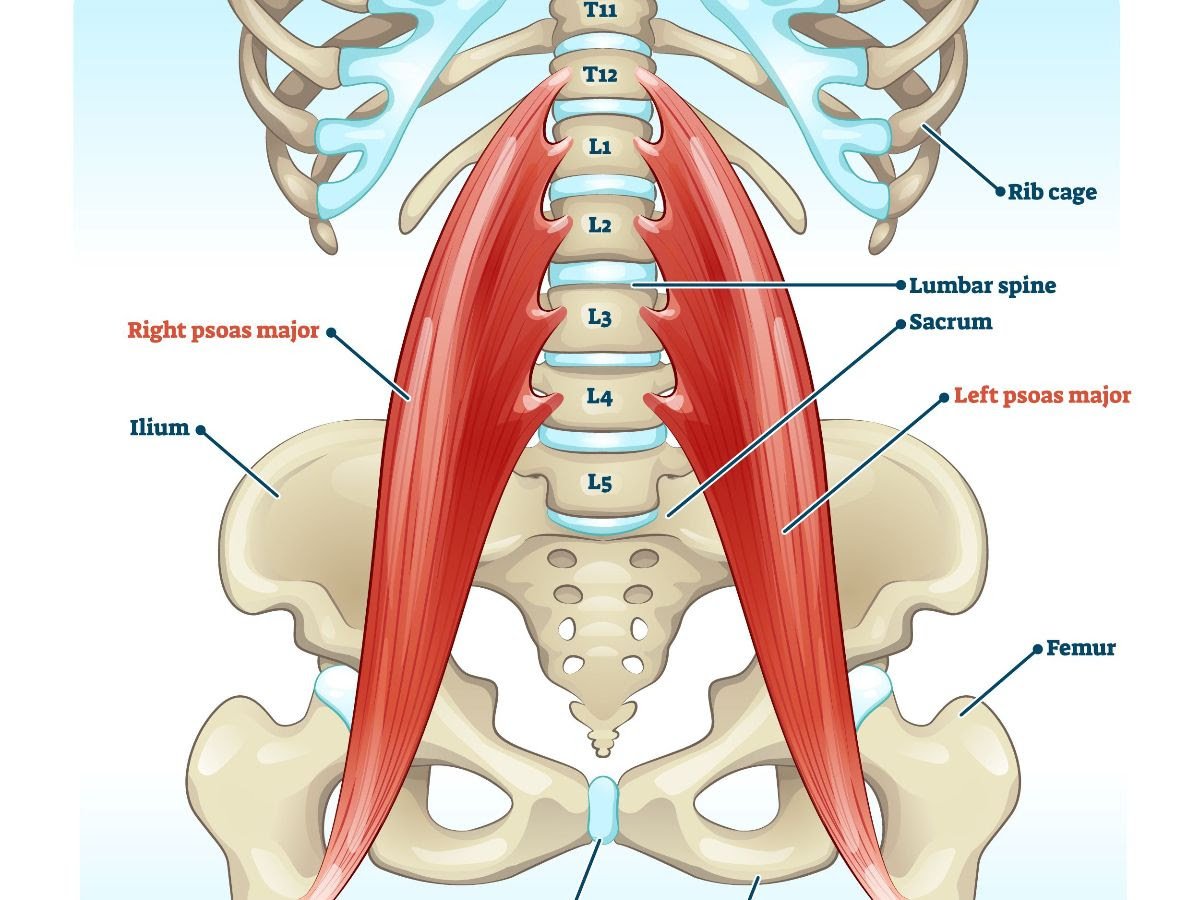The Psoas Muscle
Why do you feel better for having a good laugh? One reason is that, when we laugh, we stimulate our vagus nerve, which provokes a relaxation response.
On the other hand, crying or colicky babies often have an irritated vagus nerve, which makes it hard for them to suck, swallow or breathe. They are good at letting you know something's not right.
As chiropractors, we focus on the nervous system. We can help make sure your vagus nerve isn't irritated so that you, or your baby, are more relaxed. There are also a few things you can do yourself.
So what is the vagus nerve and why is it so important?
The vagus nerve, or cranial nerve 10, is the longest of the 12 cranial nerves in the body. They come as a pair - one on the right and one on the left. The name vagus comes form the Latin to wander.
The vagus nerve originates from the Medulla Oblongata, at the base of the brain stem. It then 'wanders' to the neck, larynx and pharynx, heart, lungs and abdomen. As one of the main nerves in our parasympathetic nervous system it controls our ability to rest and digest.
How is your vagus?
If your vagus nerve is functioning well, your heart rate will be regular, your breathing slow and your digestion good. This is particularly important for babies. To get the suck, swallow and breathe trio in perfect harmony you need a happy vagus nerve. An irritated vagus nerve in babies can lead to a lot of crying and colic.
If you know of any irritated babies please send them our way. A recent testimonial:
"We had been having real struggles with our baby daughter who had suspected colic but also some neck discomfort due to having had an abscess and therefore a period of time looking in only one direction. We saw Vanessa and after just one session we noticed a difference in her. After 4 sessions it's like we have a different baby, she is so much happier, much more content and now enjoys turning her head in both directions to look at her twin brother"
How Chiropractic can help
If you are feeling stressed or on edge let us know at your next appointment. We have several gentle chiropractic techniques to calm down an irritated vagus nerve. We will check the base of your skull where the vagus exits through the jugular foramen. We will check your neck, especially C1, which is the vertebrae at the very top of the spine. The techniques that we use on babies can also be used on children and adults.
How you can help yourself
Singing and humming. As the vagus nerve supplies the larynx (vocal chords) and pharynx, singing, humming, chanting OM during yoga all stimulate the vagus nerve resulting in a relaxation response.
Breathe deeply. Deep slow breathing from the abdomen stimulates the vagus nerve and lowers the heart rate.
Massage. Book yourself a massage. e have 2 great therapists in the clinic.
Laughing. It's true - laughter is the best medicine.
Cold water. Regular use of cold water therapy triggers the vagus nerve resulting in a relaxation response. Talk to me first before going in the sea!Pronounced so-az this deep core muscle connects the lumbar spine to the femur. It works as a hip flexor and is the only muscle in the body that connects the upper body to the lower body.
How are yours feeling?
Problems with your hip flexors (psoas) affect all sorts of people. If you are a dancer you are likely to have tight hip flexors (psoas) as you use them a lot! This can lead to over use, tendonitis or even injury. If you are an office worker your hip flexors tend to be really tight as well. Too much sitting makes them short. Common symptoms of psoas problems are:
Difficulty walking, especially going upstairs
Back pain
Groin pain
Snapping hip syndrome
Increased curve in your low back (lordosis)
Leg length difference
How can we help?
First of all we will muscle test both your psoas muscles to see if they are strong. If they are - then great. If not we will palpate to see if they are tight or tender. Often a weak psoas muscle can be released with gentle massage and will become strong straight away. Amazing! I recommend the pigeon stretch to release the psoas - try 5 minutes each side. This stretch isn't suitable for eveyone, so ask for advice at your next appointment.
We also recommend Yoga and Pilates to help maintain a healthy psoas!
If you feel you've overdone it and want to discuss a niggle or a twinge, call us on 01747 851455. Or email me at hello@shaftesburychiropractic.co.uk
All the best,
The team at Shaftesbury Chiropractic






